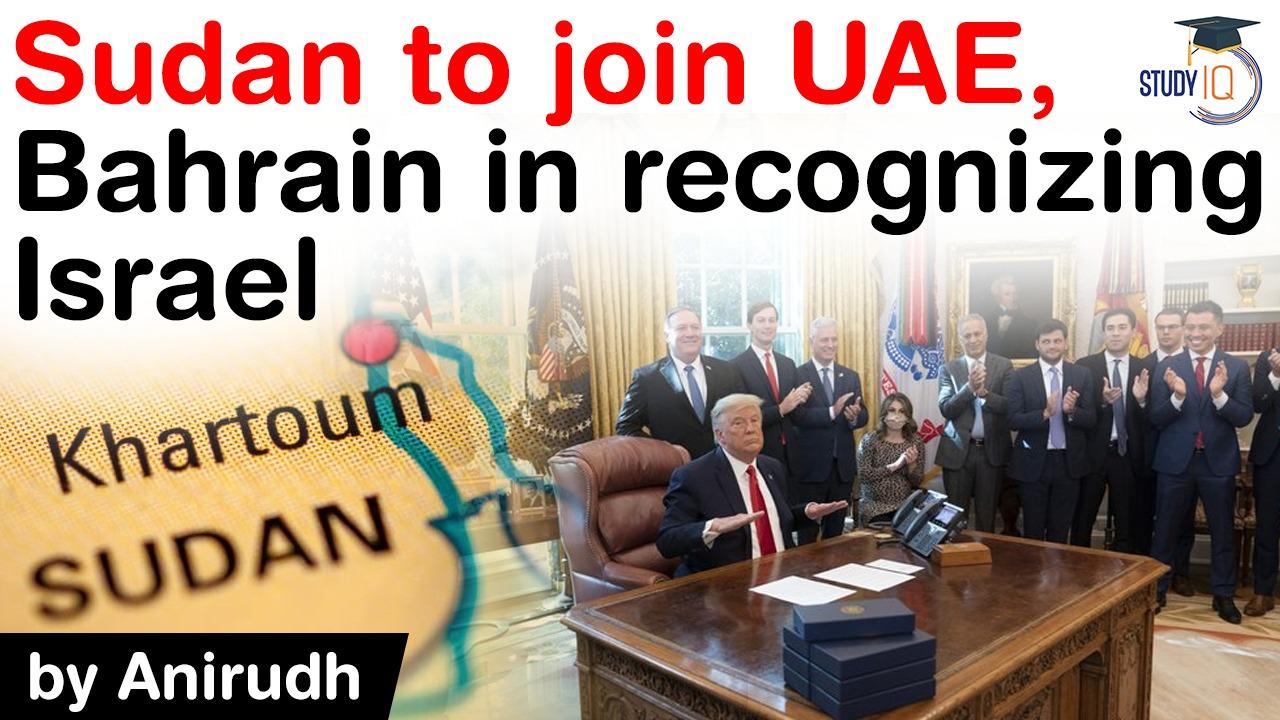Table of Contents


Who decides this and on what basis?
- The US Secretary of State has been given powers to designate countries that “have repeatedly provided support for acts of international terrorism” as “State Sponsors of Terrorism”.

Impact of being in this list
- The US can place four categories of sanctions on countries part of the list–
- restrictions on U.S. foreign assistance;
- a ban on defence exports and sales;
- certain controls over exports of dual use items;
- and miscellaneous financial and other restrictions.



Sudan becomes 3rd Country to Recognise Israel
- Sudan on Friday became the third Arab nation in recent weeks to normalise relations with Israel.
- Plus Sudan will give $335 million in compensation for victims of terror attacks on US embassies in East Africa in 1998 and on a US warship in Yemen in 2000.
1998 and 2000 Bombings
- The attacks include the 1998 bombings of the U.S. embassies in Kenya and Tanzania by the al-Qaida network while its leader, Osama bin Laden, was living in Sudan. 2000: Cole Bombings attack by Al Qaida in Yemen.
In return, the USA…
- Days after the US removed it from its State Sponsor of Terrorism list, of which the North African country was a part for over 27 years.

An Electoral Achievement for Trump
- The new recognitions of Israel unify Arab nations around their common enemy, Iran.
- Trump said at least five other countries want to come into the deal, which is collectively called the Abraham Accords.

Economy and Polity of Sudan
- “Because of the economy, Sudanese don’t see this as normalization with Israel but normalization with the international community,” said Osman Mirgany, a prominent Sudanese columnist and editor of the daily al-Tayar. “After years of isolation, we want normal relations.”
- Sudan is on a fragile path to democracy after a popular uprising last year led the military to overthrow the longtime autocrat, Omar alBashir.
Israel welcomed the Deal
- “Today, Khartoum is saying yes to peace with Israel, yes to recognition of Israel and yes to normalization with Israel,” Netanyahu said. “This is a new era, an era of true peace — peace that is proceeding and widening with additional Arab countries. Three in the last few weeks.”

Palestine’s Reaction
- Palestinian President Mahmoud Abbas condemned and rejected the agreement, saying a lasting peace in the region depends on ending the Israeli occupation and creating a Palestinian state.

- Wasel Abu Yousef, a senior Palestinian official, called the agreement a “stab in the back” of the Palestinian people and their cause.
- The Palestinians say the recognitions amount to betrayal. Not everyone in Sudan is happy


- “I expect anger. I expect demonstrations,” said Mohammed El Hassan, one of the leaders of alBashir’s disbanded National Congress Party. “As Muslims, we stand with the Palestinians. It is not the transitional government’s role to take this kind of decision.
Latest Burning Issues | Free PDF






















 WhatsApp
WhatsApp